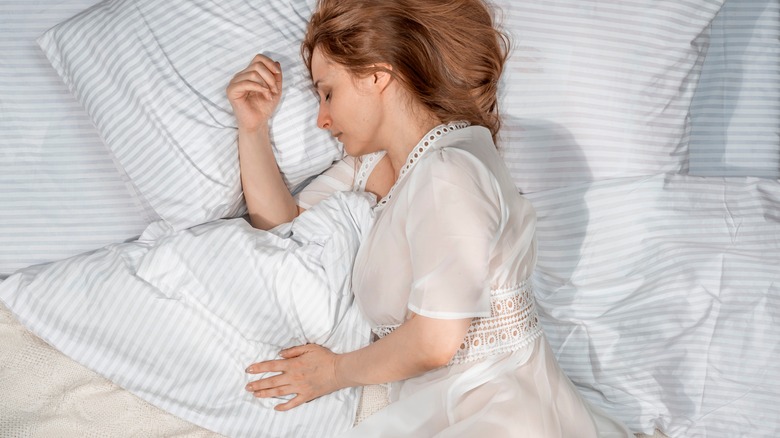Do Blind People Dream Differently?
What was the last dream you had? Was it of you on a beach with cinnamon-colored sand and a bright pink cocktail in your hand? Or perhaps it was more obscure like you were in space with your dog who was speaking to you with a heavy French accent. Our dreams are one-of-a-kind and are often made up of things that visually make an impression on us before our heads hit the pillow at night. Likewise, they represent our inner thoughts and emotions, amongst other things. Some of the most common dreams involve losing your teeth, taking a test, or being chased. Recurring dreams are also pretty normal among American adults.
This begs the question; if our dreams are often unexplainable concoctions of the imagery we have seen while we are awake, then what do blind people dream of? As it turns out, our vision isn't the only thing contributing to our dreams. In a study conducted with people who have been blind since birth, researchers concluded that they had eye movements that correlated to visual dream recall while asleep. In addition, the subjects also reported experiencing visual imagery in their dreams.
But not all experts agree on how blind people dream. Some debate that those who were born blind are unable to experience visions in their dreams (via Very Well Mind). On the other hand, other experts strongly believe that people born blind can have visual sensations while sleeping. Nevertheless, they agree that there's likely significantly less imagery in their dreams than in a sighted person.
Blind people lean more heavily on their other four senses
When it comes to real life and their dreams, blind individuals rely heavily on their four senses. Thus, blind people are likely to have stronger sensations of sound, touch, taste, and smell in their dreams than sighted people. In a study conducted on 15 blind adults in 1999 (via Healthline) it was reported that some blind people often dreamt of food or eating. They were also not as likely to have dreams about violet encounters but had more dreams about animals.
Because individuals who have been blind since birth do not have any formed visual memories, they will likely dream of blobs of color that float or flash. Poet and author Stephen Kuusisto was born blind and explained this to Insider, saying, "Let's say your dream is like a Martin Scorsese movie. A blind person's dream will be more like a Monet painting. It will have people in it and it will have places in it, but it's going to be abstract or impressionistic — less moored to a faithful, or photographic replication of what a visual person might see."
Kuusisto noted that he sees color and shapes in his dreams and disagrees with the notion that blind individuals can't have visual sensations in their dreams. However, in a video posted on YouTube, blind social media personality Tommy Edison, who, like Kuusisto, was born blind, says that he does not have any visual sensations in his dreams and that his dreams center on "smell, sound, taste, and touch."
Blind individuals have more nightmares
Individuals who lost their sight in childhood are a different story. It might be important to note that people born blind don't have as many eye movements during REM sleep as people who can see, which further explains why some believe that blind people can't have visual dreams (via Sleep Foundation). Research shows that visual dreams are more common for children who went blind before the ages of five to seven. Unsurprisingly, kids who lost their vision after seven experienced more visual dreams. Both age groups will likely have more sensory elements incorporated into their dreams. Likewise, blind people can dream of people and places they saw before becoming blind and fabricate their own.
Unfortunately, a 2014 Danish study concluded that blind individuals are more likely to have nightmares than sighted people or those who became blind later in life. Heidi Andersen was born blind and told ScienceNordic that her nightmares revolve around being hit by a car or falling. The study's lead author Amani Meaidi explained that this is a common phenomenon among blind individuals, noting, "The study confirms an already existing hypothesis that people's nightmares are associated with emotions they experience while awake. And blind people apparently experience more threatening or dangerous situations during the day than people with normal sight."
Meaidi added the blind individuals involved in the study were surprised to learn that they had more nightmares because they did not feel affected by them. Nevertheless, whether you're blind or a sighted person, dreams are for everyone, and they are often just as obscure as everyone else's.


